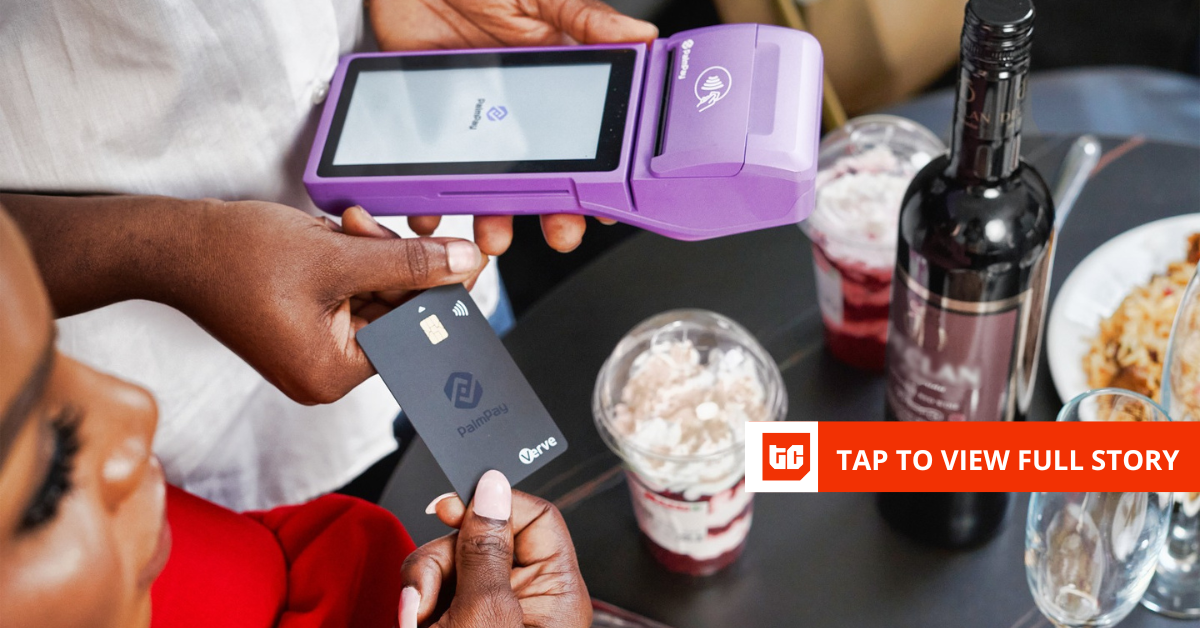PalmPay, the Nigerian fintech with over 35 million users, has launched its first debit card in partnership with Verve, marking a major step in its evolution from a mobile wallet to a full-service digital financial platform. The move comes amid a broader shift by Nigerian fintechs toward local card schemes, as rising costs and declining international spending make global providers like Visa and Mastercard less attractive.
The debit card launch comes three weeks after Palmpay’s partnership with the national domestic card scheme, AfriGo, to distribute five million contactless payment cards across Nigeria.
Now, it is integrating Verve-powered debit cards directly into its digital wallet. The company says it will distribute the cards through its network of over one million agents nationwide. With its expansive reach, PalmPay expects to onboard millions of cardholders by the end of the year.
Palmpay debit cards come in two tiers: a standard version available to all users and a premium version linked to a new membership program. To upgrade to premium status, users must maintain a monthly balance of at least ₦20,000 and transact a minimum of ₦500,000 per month. Premium members will earn up to 36% annual savings interest—compared to 20% for regular users—and receive higher cashback rewards and merchant discounts.
Why now?
For years, Palmpay has focused on building scale, user trust, and backend infrastructure, according to Sofia Zab, its chief marketing officer. The company waited until it could deliver card services integrated into the PalmPay wallet, Zab said.
“There are third-party APIs that let you spin up prepaid cards quickly, but we took a more deliberate route,” she said. “We formed a direct partnership with Verve so we could design a product that truly fits the needs of Nigerian consumers.”
Palmpay’s debit card partnership continues the wave of Nigerian fintechs partnering with local card schemes due to rising costs for international card providers and reduced customer spending. Opay and Moniepoint have both issued about 17 million Verve cards post-pandemic, ditching international partners like Visa and Mastercard. Carbon, the Nigerian digital bank known for its loans-led approach to banking, recently partnered with Verve to resume issuing debit cards nine months after pausing card operations.
The debit card launch comes at a time when much of Nigeria’s fintech ecosystem is leaning towards bank transfers. HabariPay, the fintech subsidiary of one of Nigeria’s biggest banks, is betting its future on increased transfers. Paystack also recently launched Zap by Paystack, its first consumer app, on that promise of increased transfer volumes.
Despite the surge in bank transfers, PalmPay believes cards still serve a crucial segment of Nigerian consumers.
“Not every user is a young, digital-first Lagosian. Some live in towns with limited phone access or want the flexibility to shop online,” Zab noted. “If we want to serve every Nigerian, we need to build for every Nigerian, and that includes access points such as our app and also our agents, USSD, and now cards.”
The bigger play
PalmPay’s ambitions extend beyond payments. The company has quietly rolled out a growing suite of banking services, including savings, credit (through a licensed partner), and an insurance product launched in partnership with AXA Mansard and Leadway. PalmPay claims that over one million users have already adopted its insurance offerings.
“We are much more than a digital wallet or POS company,” Zab said. “We’re building a full financial ecosystem—one that works for every Nigerian, no matter where they are on their financial journey.”
The fintech also plans to expand its nationwide presence by opening more offices and experience centers to support its growing customer base.
PalmPay’s bet on cards suggests that, in the race to redefine banking in Africa’s most populous economy, fintechs are realizing that old-school banking tools still have their place.
Crédito: Link de origem


